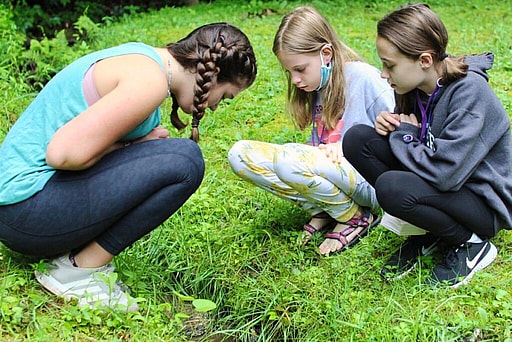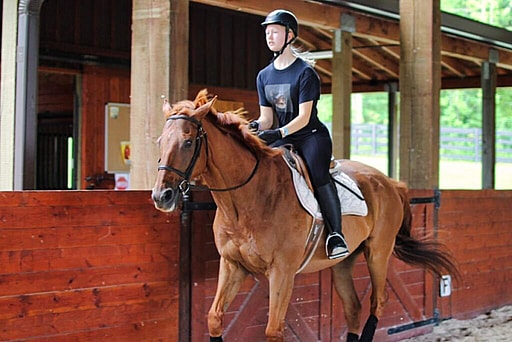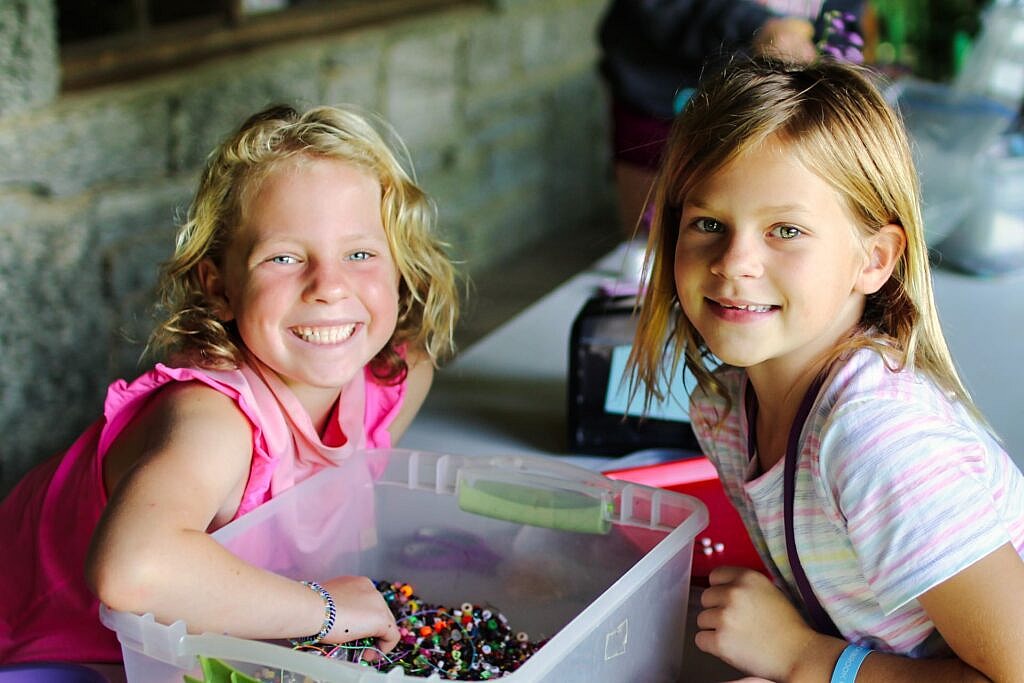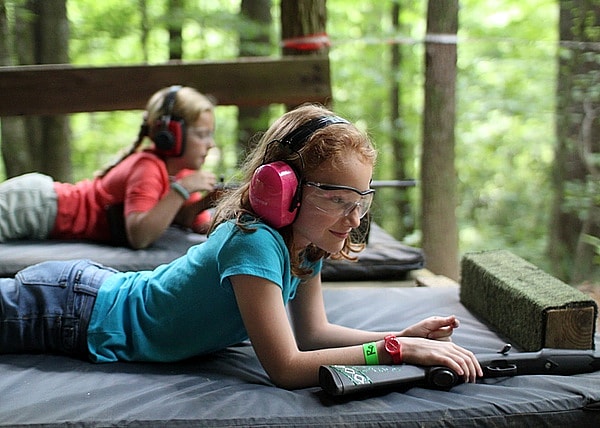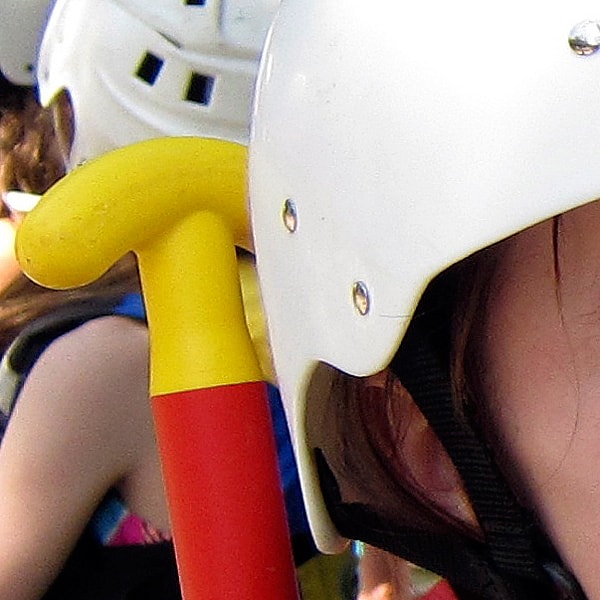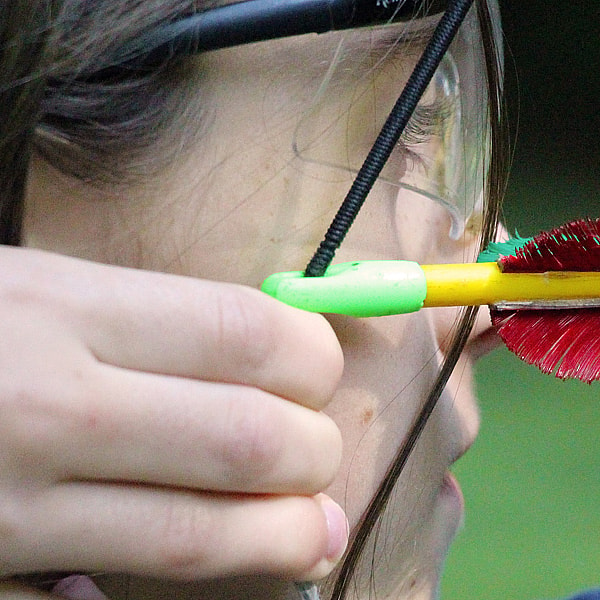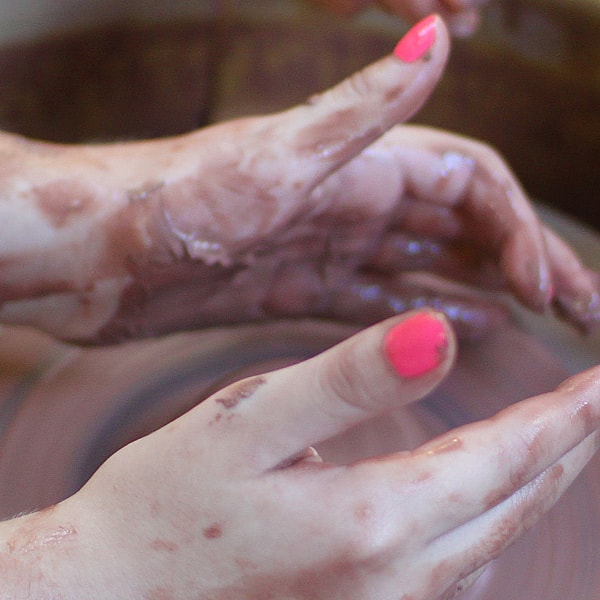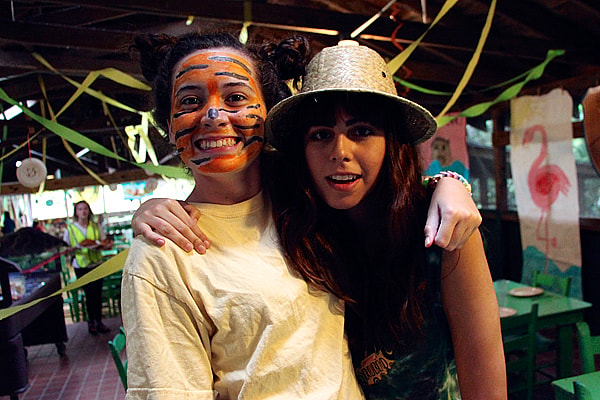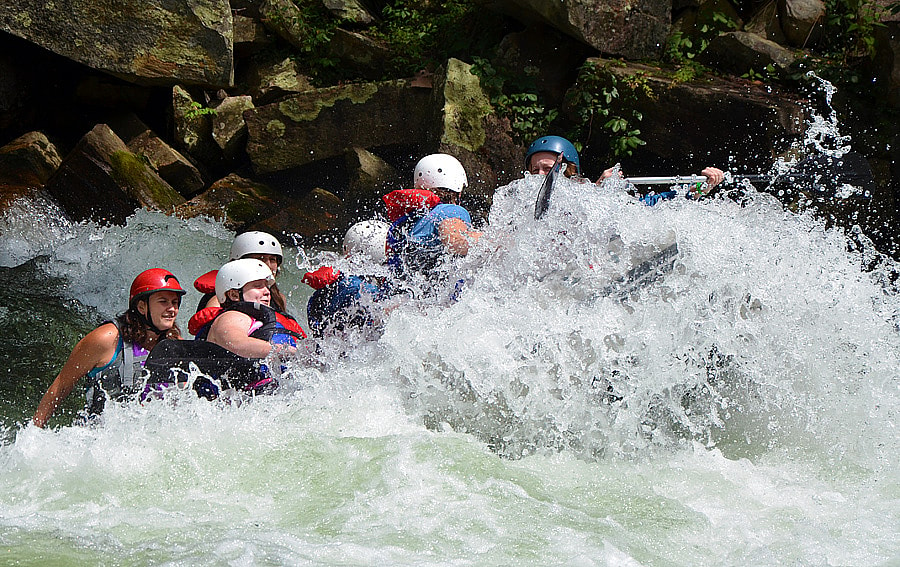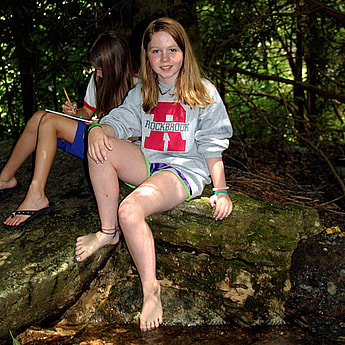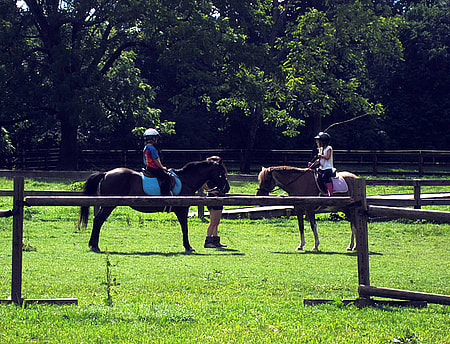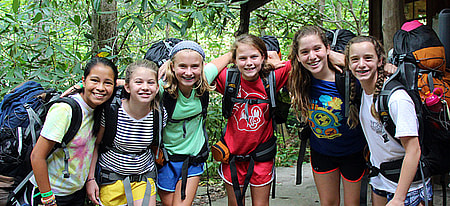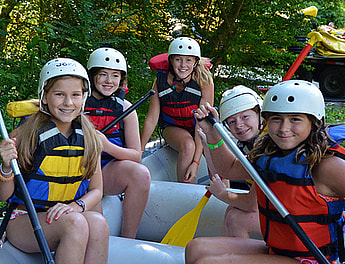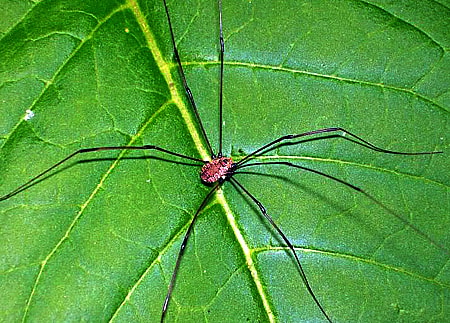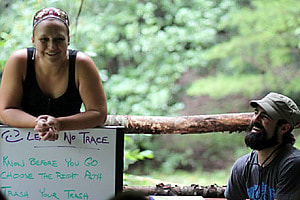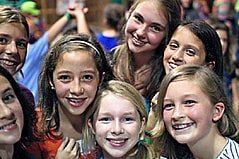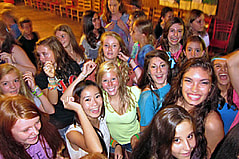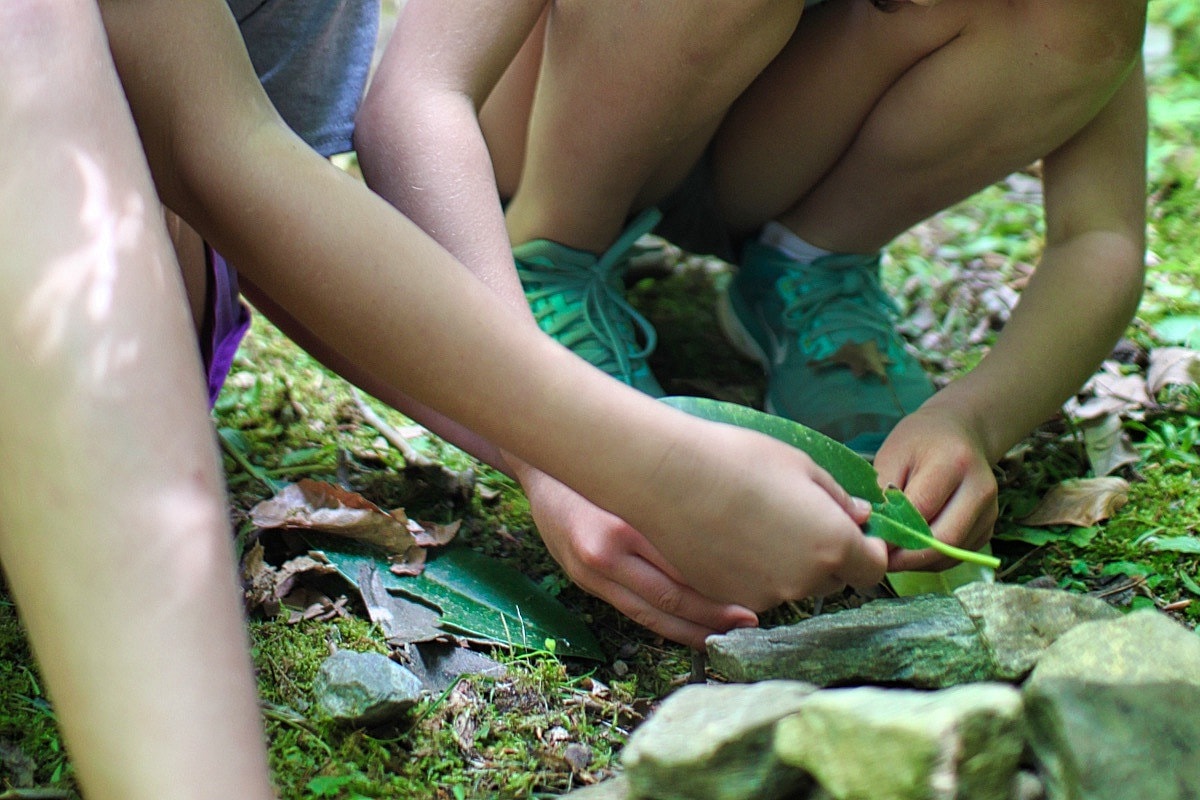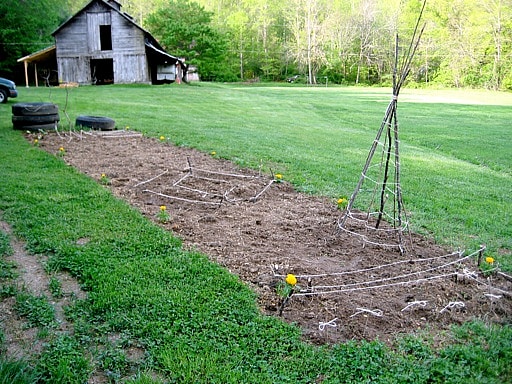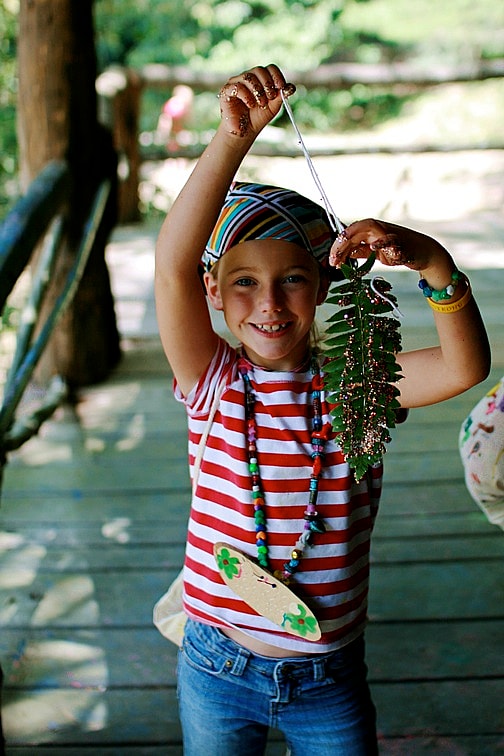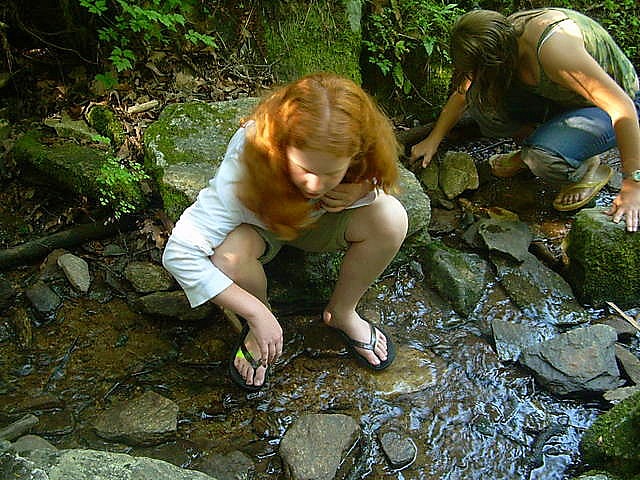One inescapable fact about life at Rockbrook is its immersive outdoor quality. Around here the complex forces of nature, the rich textures and tones of natural beauty, are our daily companion. In every direction, there is something wonderful, something that can fill you with wonder, waiting to be noticed. Sparkling streams, angular rocks covered with moss, tiny insects scurrying across the ground, ancient trees towering above— we’re surrounded by the mysteries of the natural world.
The weather, too! We’re submerged in the morning fog, never far from the rain, feeling the sun and the wind as they appear. Sometimes we’re hot, other times cold and damp. We’re watching clouds blend with sunsets, marveling when a thunderstorm rolls through. This afternoon, for example, when the sun was out in one direction and a drizzle fell in the other, a cabin of girls stood in the rain happily getting wet as they cheered the sudden rainbow overhead.
We cherish this outdoor living at Rockbrook, fostering this organic feeling whenever we can. Instead of shielding ourselves from nature, we want our days to include it, hoping to celebrate every rich opportunity it might provide. That’s why at Rockbrook we don’t level every stepping stone, smooth every surface, or eradicate every insect we see. That’s why the compassionate “catch and release” of a stray spricket in the cabin is a skill admired around here. We carefully trim encroaching rhododendron bushes and build using stone and rough cut lumber when we can. We love to eat outside, sit on the ground in our crazy creek chairs, and wade through the creeks in camp. We love the “refreshing” cool water of the Rockbrook lake. How different this is from life in the “civilized” world where it’s more common for kids to suffer from a degree of “Nature Deficit Disorder,” as Richard Louv has put it. At Rockbrook, there’s no such deficit.
Riding a horse complements this close experience with nature by introducing a relationship with a living creature. Throughout each day, girls at camp are meeting horses, touching them, talking to them, caring for them, and yes, riding them. They’re using subtle, and some not so subtle, movements to communicate how the horse should behave. With the proper coaching, this allows the riders to change the horse’s gait, more faster and over obstacles like cross rails and jumps. It’s a real thrill for the girls to build their confidence with these large animals, trusting them, and cooperating with them to enjoy moving around the riding ring together. We’re seeing a strong interest in riding this session, with many first-time equestriennes giving it a try. Our 32 horses are happily getting plenty of attention!
Today all of the Middlers and Seniors who have not already gone took a trip over to the Nantahala River for whitewater rafting. It’s now a strong tradition for Rockbrook girls to raft this popular river, one that started back in the 1980s. With our own guides operating our own equipment, Rockbrook is fortunate to have a permit allowing it to run trips without outside help.
Rafting the Nantahala is always a blast, even for those who have done it is the past. Wearing the gear, riding in the boat with your friends, the “freezing” cold water, bumping and bouncing over the rapids, and goofing around for the camera— all add to the excitement and fun. We were lucky to have great weather all day today, making the trips altogether excellent. Heart pumping outdoor excitement with friends!


